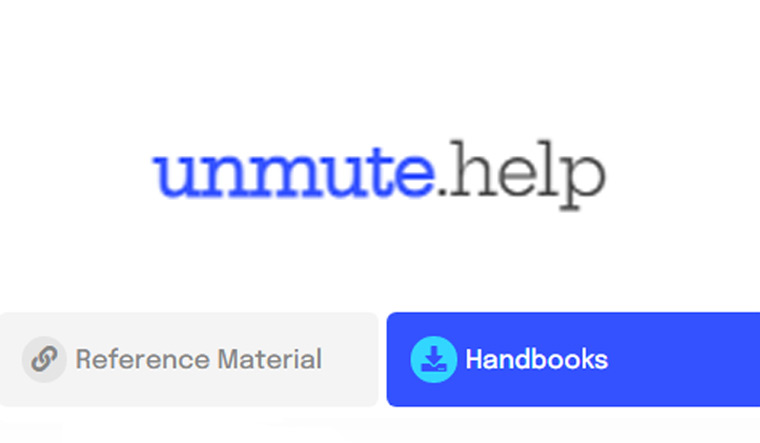An essay on how artists can interpret copyright law in an age of booming virtual content; situating the law on prevention of sexual harassment at the workplace in performing arts; petitions on the rights and royalties of artists and choreographers; audiovisual docs, posters and handbooks on workplace ethics in the arts—all this and much more can be found in a new resource portal called Unmute which seeks to educate practising artists about ways and means to safeguard their rights.
Unmute: A Performer's Guide to Speaking Up hopes to provide a safe platform for information and guidance to aggrieved artists seeking legal redress against violations like copyright protection issues, sexual harassment, obscenity and sedition charges, etc. Spearheaded by Delhi-based arts scholar Arshiya Sethi, performer-arts manager Paramita Saha and dancer-lawyer Somabha Bandopadhyay as founding members, the website will address the issues of rights and responsibilities of artists and arts leaders in India.
The website www.unmute.help is now live.
The website will serve as a resource centre for information, reference material, a guide to laws, rules and regulations, research content and audiovisual documentation of expert conversations. It will also act as an independent advisory platform headed by a panel of representatives from both artistic and legal communities, including professors from West Bengal National University of Juridical Sciences, interpersonal ethics advisor Asiya Shervani and sociologist and activist Urmi Basu.
Speaking at the virtual launch of the website, Akhil Sibal, senior advocate at the Supreme Court of India, stressed the importance of preserving artistic freedom. "Artists need to challenge our prejudices, our status quo and thoughts that we assume are the right way of approach, they are meant to provoke us into pushing ourselves to improve and grow. They can only do that if to some extent they have the right to offend," said Sibal who represented the late MF Husain, defending the celebrated painter against obscenity charges in 2008. He also spoke about the need for victims of sexual assault to "own" their allegations. "It's very dangerous, legally, though it’s comforting, to make allegations on social media anonymously. It creates a major legal problem because they fail to appreciate that the person against whom the allegations are made is also interested in protecting themselves from false allegations."
Two years after the explosion of the MeToo movement when the Madras Music Academy barred seven Carnatic musicians from performing at its famed Margazhi music festival, the Indian classical music fraternity in 2020 was again jolted by news of sexual harassment allegations against two senior gurus of Bhopal’s Dhrupad Sansthan by a group of students.
Discussions at the launch ranged from elitism, skewed power dynamics and personality cults in the performance arts to the need for nurturing "brave spaces". Artists seeking legal help can write to the Unmute administrators via email or by filling an information form on the website.



